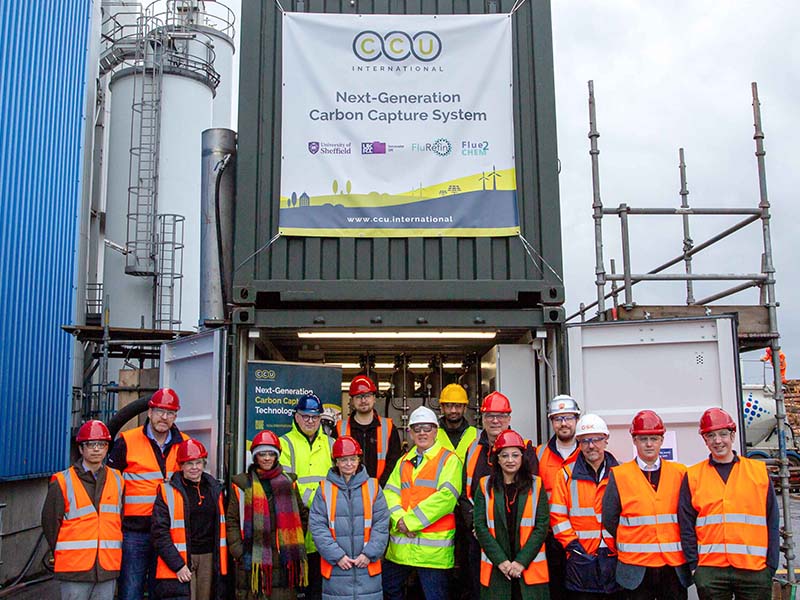A key milestone in a trial testing more sustainable ways of making household consumer goods has taken place in Irvine.
UPM’s Caledonian papermill is part of an Innovate UK-funded collaboration of seventeen organisations – including FTSE 100 businesses, universities and innovators - to find an alternative raw material to virgin fossil fuel for many manufactured goods, from cosmetics to plastics. The Flue2Chem initiative examines the potential for using valuable carbon dioxide emissions from industry as an alternative source of carbon.
Carbon dioxide from the plant has started being captured using disruptive technology developed by award-winning Scottish tech start-up, CCU International.
Batches of CO2 are then sent to the University of Sheffield, where it will begin the next stage of the innovative process to be converted into ingredients for household detergents.
Just over five per cent of the world’s fossil fuel carbon is currently used to make everyday materials and household products such as plastics, textiles and cleaning products.
Findings from the Flue2Chem project will inform industry and the Government about the feasibility of using carbon dioxide emissions as an alternative ingredient for many household and consumer products. The group is assessing both the technical feasibility of the new processes, as well as the economic impacts for creating a new supply chain.
In partnership with Scottish Enterprise, the Caledonian plant is this week hosting representatives from a range of organisations including Irvine-based Ardagh Glass as well as GSK, Diageo and the Scotch Whisky Association to share their learnings to date.
Acting Minister for Climate Action Alasdair Allan said:
“The deployment of pioneering carbon capture and utilisation projects like this is an important step in decarbonising our economy, and highlights the enormous economic opportunities of the global transition to net zero. The lessons learned can help to ensure the rollout of negative emissions technologies is possible at the pace and scale required in the coming years.”
Andrew Johnston Development Manager at UPM, added:
“UPM is proud to be involved in one of Scotland’s first carbon capture and utilisation projects. Investigating an alternative domestic source of carbon for consumer goods allows us to contribute to net zero targets and explore innovative new ways of doing business. When Scottish Enterprise asked if we could share our learnings with local businesses, we were very pleased to get involved.”
“No single company can do this alone and the level of collaboration between our seventeen partners has been unprecedented as we test out a whole new potential supply chain.”
Alongside UPM and CCU International, the partner organisations are Unilever, SCI, BASF, Tata Steel, Croda, LanzaTech, Johnson Matthey, Holmen, the University of Sheffield, the University of Surrey, Carbon Clean, Proctor & Gamble, the Centre for Process Innovation, the Confederation of Paper Industries, and Reckitt.
Beena Sharma, CEO and Co-Founder of CCUI, added:
“This milestone marks a significant step forward in demonstrating how carbon capture and utilisation can help decarbonise everyday products. By working with our partners in Flue2Chem, we are proving that waste carbon can be transformed into a valuable resource, reducing reliance on virgin fossil fuels. It’s an exciting moment for CCU International and for the future of sustainable manufacturing in the UK."







